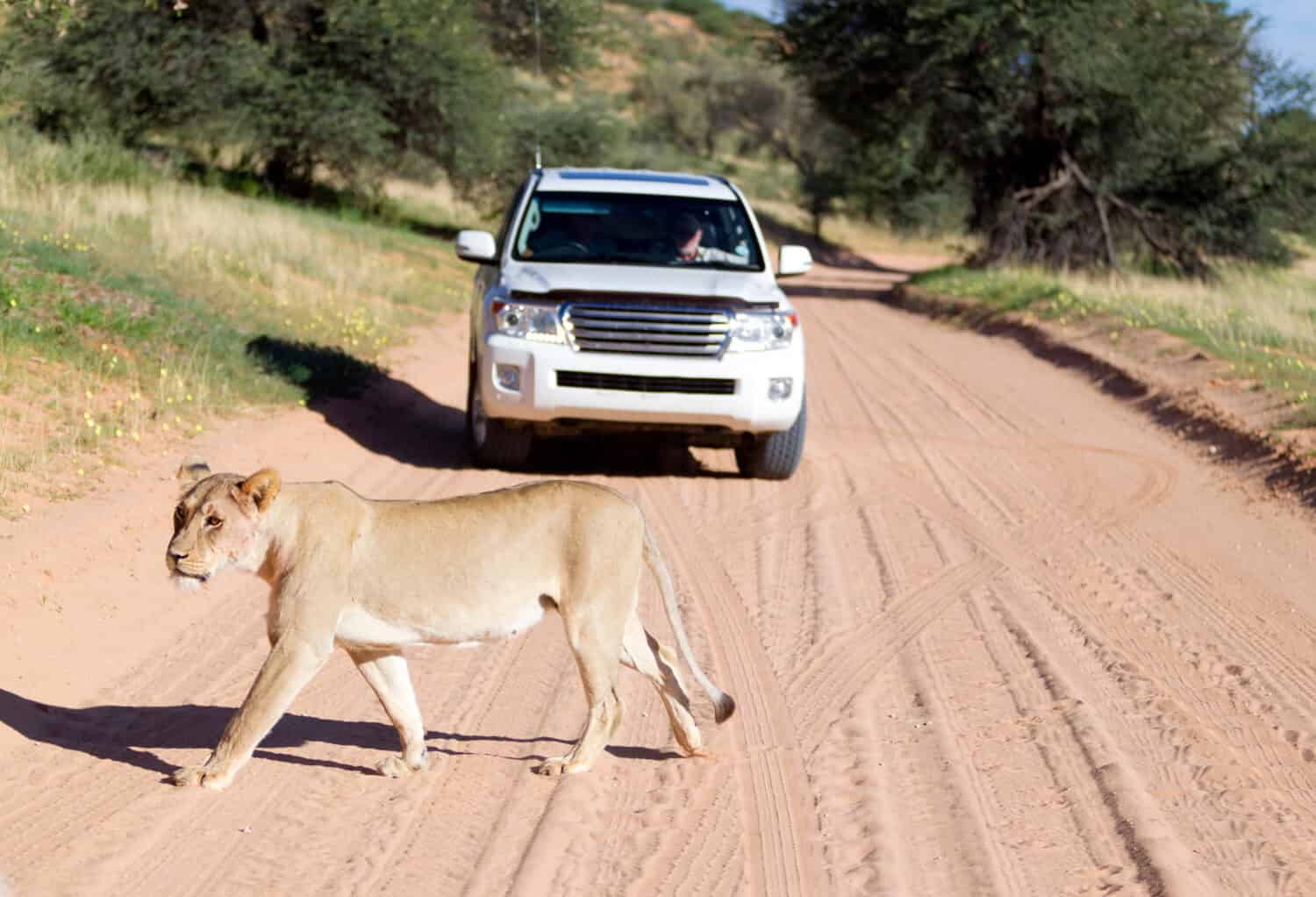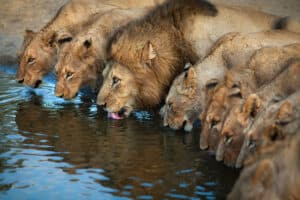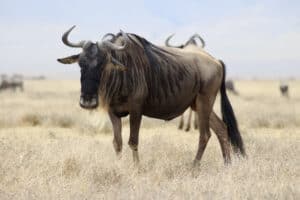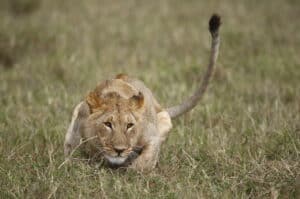King of the jungle… more like king of the parking lot. Take a look at the video below which shows a group of lions attacking some dogs at a gas station!
Watch the Shocking Video!
The video was taken from a security camera at a gas station called Shree Ganesh Petroleum. The footage initially shows a few dogs standing in the middle of a gas station parking lot. They seem alarmed and are barking at something that is in the distance.
After a few more seconds of barking and growling, dogs become scared of whatever they see in the distance. In an instant, the dogs run away in fear, leaving the gas station parking lot empty. A few moments later, a pair of lions come walking onto the scene, making loud growling noises.
More dogs can be heard barking at the lions, but they don’t seem concerned. After taking a few laps around the parking lot, the lions walk off nonchalantly into the night!
Where Do Lions Live?
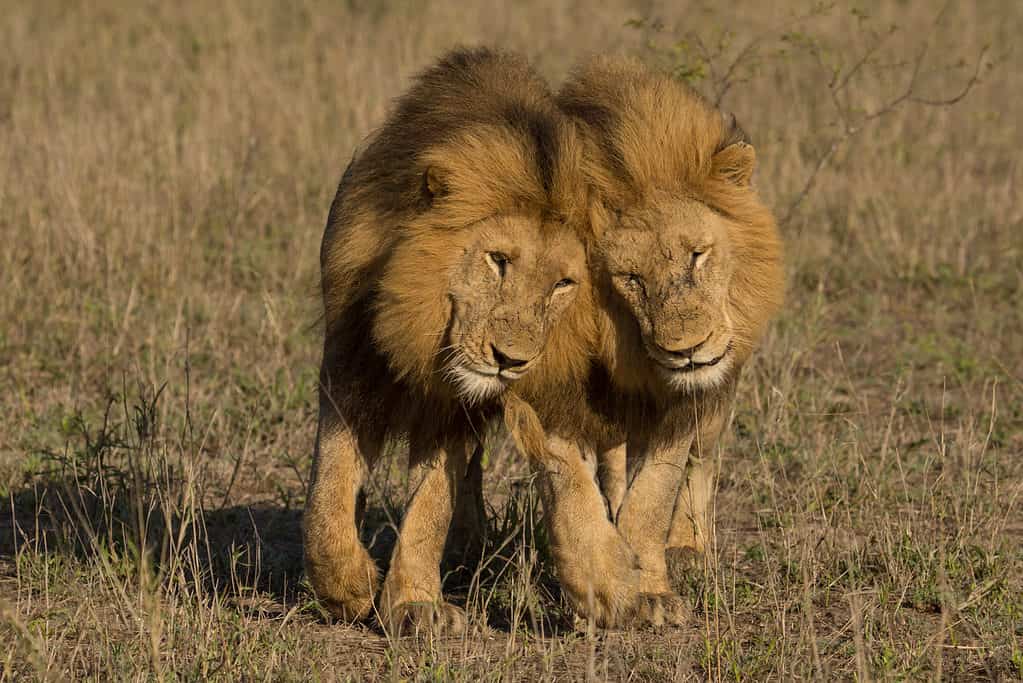
Lions rarely eat other carnivores as they do not provide the best nutrition
©Maryke Scheun/Shutterstock.com
In full honesty, it’s somewhat jarring to see two lions walking through such an urban area. Usually, lions are associated with dense natural habitats that have little or no interaction with humans. There is some overlap between the natural habitat of lions and the urban areas that surround them.
In truth, lions are pretty flexible with their habitat. They have historically lived in ecosystems like dry brush grasslands and thick brush forests. Geographically, lions are mainly found within Southern Africa, from the southern fringe of the Sahara to northern South Africa. Notably, they have dwindled in other locations globally, and can otherwise be found in niche endemic sites such as the Gir Forest in India.
With this range, it is no wonder that lions may run across humans from time to time, especially if they are engaging in long-distance travel through semi-urban areas.
How Large Do Lions Get?
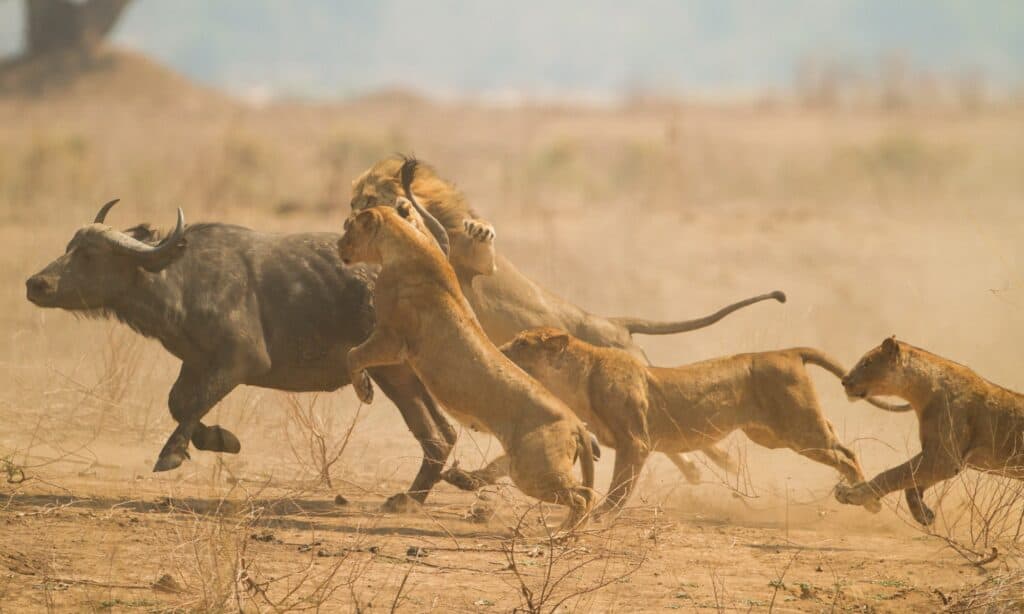
Male lions can attain astonishing lengths of 10 feet and feature tails that stretch from 2 to 3 feet.
©iStock.com/jez_bennett
Male lions can grow to staggering lengths of 10 feet and possess tails spanning 2 to 3 feet. Their weight ranges from 330 to 550 pounds. On the other hand, females reach lengths of 9 feet and weigh between 265 and 395 pounds.
There have been accounts of a lion weighing 690 pounds, a record recognized by the Guinness Book of World Records as the largest documented lion.
Generally, wild lions tend to reach a maximum weight of 496 pounds in southern Africa and 451 pounds in eastern Africa.
Lions Hunting in Pairs
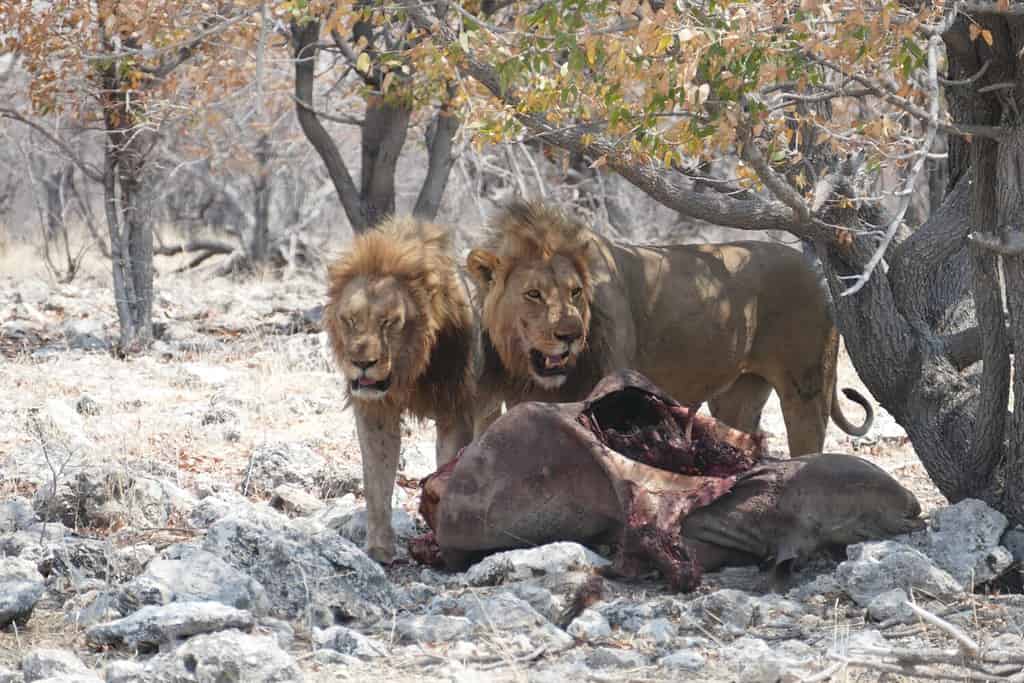
Lions frequently hunt in groups of at least two members. When they get a kill, they will usually share with their hunting partners!
©Alicia renno/Shutterstock.com
As with many other videos that show lions hunting, the two in the video worked as a team. Hunting in duos or even large teams is a common behavior that is seen in many animal groups such as orcas and wild dogs.
For lions, hunting as a team has a few main benefits. First of all, it can allow them to take down prey that is very fast or very dangerous. In other words, hunting a large animal such as an elephant can easily turn into a deadly affair if you are working alone!
Hunting in groups can also allow them to size up and adapt to new situations. When lions are hunting, they often travel to look for food. This movement can cause them to be confronted with new situations and challenges that would be hard to fight alone.
For instance, if a lion came across a large pack of wild dogs, crocodiles, or any other large predator, their chances of survival would be very low if they were alone.
Thank you for reading! Have some feedback for us? Contact the AZ Animals editorial team.

